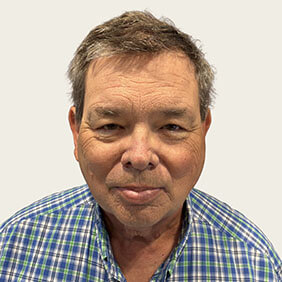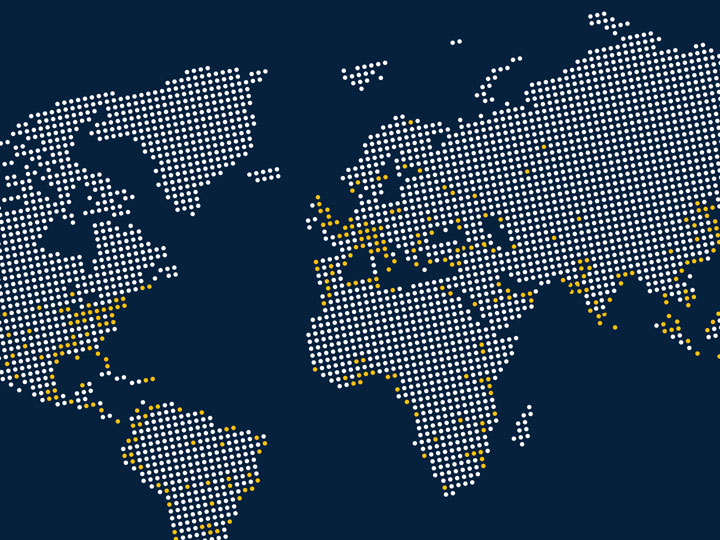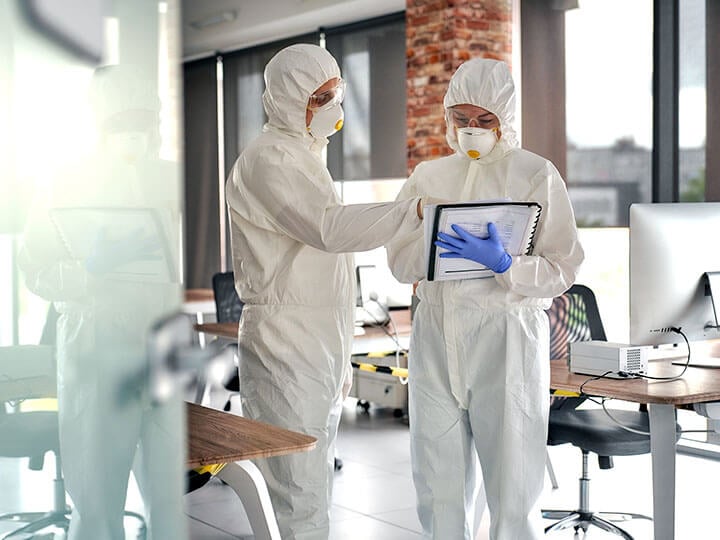Meet Our Certified Industrial Hygienists
What is a Certified Industrial Hygienist?
A Certified Industrial Hygienist (CIH) is a qualified professional responsible for protecting the health and safety of workers and the public by anticipating, recognizing, evaluating, and controlling various hazards, including chemical, physical, ergonomic, and biological risks. Certified by the Board for Global EHS Credentialing (BGC), CIHs are required to meet specific educational requirements, demonstrate a high level of expertise, and pass a rigorous examination to earn certification. The CIH is recognized globally as a preeminent credential for industrial hygiene certification and is the highest regarded and most difficult certification to obtain among environmental health and safety credentials.
Intertek's Certified Industrial Hygienist
Our Industrial Hygienists play a vital role in identifying, managing, mitigating, and remediating potential hazards that could impact employees, communities, and the environment including, but not limited to:
- asbestos
- lead-based paint
- mold
- Indoor Environmental Quality - specialized evaluation and management of airborne contaminants, particularly aerosols, within indoor environments to ensure the health, comfort, and productivity of occupants.
- Exposure Assessment - a systematic process of evaluating workplace exposure conditions that may cause illness or injury. This assessment includes gathering information about the workplace, workforce, and environmental agents, assessing exposures in the workplace relative to available information, and determining the acceptability of exposure risks. It may involve qualitative risk assessments, modeling techniques, exposure monitoring, biological monitoring, or the development of toxicological or epidemiological data. If there is uncertainty regarding the risk, occupational exposure assessments should be conducted by experienced Industrial Hygienists.
- Aerosol and Airborne Particulate Monitoring –
- Identify potential health hazards from inhalable substances.
- Evaluate exposure levels to ensure compliance with occupational safety standards.
- Support remediation efforts in contaminated environments.
- Prevent respiratory illnesses and other health issues caused by airborne contaminants.
These particulates can include:
- Bioaerosols (e.g., bacteria, viruses, fungal spores, pollen)
- Dusts (e.g., silica, metal particles)
- Fumes and mists from industrial processes
- Chemical vapors and gases
- Hearing Conservation and Noise Reduction –
- Conduct precise and consistent noise assessments.
- Design and implement effective noise control programs.
- Assist in compliance with OSHA standards.
- Help prevent long-term hearing damage and associated costs
- Regulatory Compliance – assist workplaces in adhering to health and safety regulations and guidance set by agencies like OSHA (Occupational Safety and Health Administration), NIOSH (National Institute for Occupational Safety and Health), and others.
- Environmental Protection and Monitoring – assess healthy and safety risks during environmental remediation activities to determine adequate controls for worker protection.
- Risk Assessment and Management – perform qualitative and quantitative evaluation of potential exposures to chemical, physical, biological, or ergonomic hazards in the workplace. Risk management follows by implementing strategies to eliminate or reduce those risks to acceptable levels
- Ventilation – participate in assessing, designing, and monitoring ventilation systems to reduce worker exposure to airborne contaminants and address compliance with health and safety regulations.
- Ergonomics - apply of ergonomic principles to design and evaluate work environments, tools, and tasks in a way that fits the physical capabilities and limitations of workers. The goal is to prevent musculoskeletal disorders (MSDs), reduce fatigue, and improve overall workplace safety and productivity.
- Hazard Communication
- Safety
Our certified industrial hygienists diligently assess workplace hazards, implement advanced industrial hygiene practices, and formulate strategies for health and safety compliance. Their expertise spans from thorough hazard assessments and risk evaluations to indoor environmental quality and even training and education on safe work practices and hazard identification.
Meet our Industrial Hygienists below and view their in-depth backgrounds and experience.

Jerald Cook is a Senior Industrial Hygienist for Intertek-PSI’s Building & Construction group. He has more than 20 years of experience in the Environment, Health and Safety industry, with technical expertise in safety and industrial hygiene with an emphasis on evaluating and remediating contamination issues.
Full Bio

Clifford Florczak is an Industrial Hygienist with more than 35 years of experience in Environmental Health and Safety management. He has provided training on subject matter pertinent to safety and health to both internal and external clients. He is also an established author and accomplished speaker.
Full Bio

Jeremy Jernigan is a Chief Scientist for Intertek-PSI’s Building & Construction group. He is a seasoned leader in the Environmental, Health, and Safety sector, providing comprehensive health and safety consultation to a wide-ranging client base for the past 25 years.
Full Bio

Michael Rothenburg is the Environmental Department Manager at Intertek-PSI’s Building & Construction group. He has more than 40 years of experience in the environmental and civil engineering industries. His background in construction has proven invaluable in solving indoor air quality issues and designing remedial projects.
Full Bio
Knowledge Center
Building Health & Wellness: An Overview of Services
Acoustical Testing & Consulting Resources
Remote Pre Inspections for NFPA 80 / 101
Protek - Safety. Everywhere. Every Day
Fire Doors 101: Your Guide to Testing and Certification - Webinar Recording
Tornado Testing & Certification Requirements - Webinar Recording
Plumbing Products Testing & Certification - Webinar Recording
The Evolving Code Evaluation Process White Paper
Proposition 65 & the Furniture Industry Webinar Recording
Why Planning for FCC Certification is Key to Success in the Door Hardware Industry White Paper

Upcoming Tradeshows & Events
Resources
- Search and Buy Building & Construction Standards
- SpecDirect
- Building Products Directory
- Project Connect (formerly myATI) – B&C Products
- Construction Hive – B&C Projects (PSIQest)
- My TestCentral

